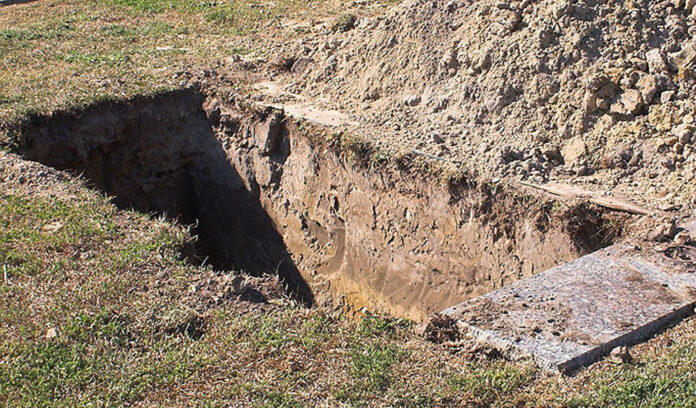THE full implementation of new burial ground regulations will lead to the demise of the long established and cherished practice of grave digging, a local undertaker has warned.
Clare County Council is preparing to engage in public consultation over its new draft burial ground bylaws containing controversial provisions, including a requirement to sink a grave to at least 8ft for a new interment, unless consent is obtained from the Health Service Executive (HSE).
Anyone flouting the bylaws may be asked to pay a fixed payment of €75 as an alternative to prosecution. Any offender who is prosecuted could face fines of up to €1,905 on conviction in the district court and a fine of €127 per day if the offence continues.
Miltown Malbay-based undertaker, James O’Friel said grave diggers will no longer be a feature of burials, particularly in rural areas, if the council proceeds to introduce these new regulations.
Stating that 8ft is well over 2ft higher than most grave diggers, Mr O’Friel explained that a mini-digger would have to be used to dig out and shore a grave at a lesser depth for the first interment.
With an average grave measuring about 6ft in depth, he pointed out it wouldn’t be possible to dig down 8ft in a lot of rural areas, where rock or limestone is a predominant feature.
His views are supported by Councillor Bill Slattery, who claimed the new bylaws put the health and safety of grave diggers at risk from slipping sub soil in 8ft graves that aren’t supported by side walls.
Having dug graves in the past, Councillor Slattery said he is totally opposed to these proposals and intends to request that the council to amend them before they are passed.
The Fine Gael councillor warned any examination of the depth of a grave by a HSE official on the morning of a burial would cause additional distress to a bereaved family, which should be avoided.
With a double plot in a public graveyard at Ennistymon costing about €800, Councillor Slattery has requested the council to dig out the stones from 10 or 12 plots and allow them to be backfilled, which he said hasn’t been granted to date.
He pointed out the situation is compounded by the fact that grave plots cannot be pre-purchased in Ennistymon and can only be obtained when a family member dies.
“I think the requirement to dig down 8ft is ridiculous. The practice of grave digging has been continuing for over 100 years. These new bylaws put their health and safety at risk. Six feet is plenty for any grave,” he said.
The draft bylaws contain 39 clauses, including definitions that deal with various matters relating to the management and control of burial grounds in the county.
According to the bylaws, a double grave measures 9ft long by 8ft wide and a single grave measures 9ft long by 4ft wide.
The bylaw process will require the publication of a notice, possibly next week, of a period for inspection and the making of written submissions, referral to prescribed bodies, the consideration of submissions and the making or otherwise of the bylaws. The bylaws could be presented to councillors again for their consideration at their statutory April or May meeting.
Clare County Council director of service, Ger Dollard told councillors at a local authority meeting on Monday that burial space is at a premium and the whole purpose of the depth requirement would ensure two burials in the one plot.
Mr Dollard noted the draft bylaws provide for cases where the subsoil does not permit a deep grave being sunk and a lesser depth could be agreed with the HSE.
In a statement to The Clare Champion, the council pointed out the requirement to sink a grave to 8ft was in place for over a century.
This is in accordance with the rules and regulations for the Regulation of Burial Grounds (1888) as amended in 1929 or as agreed with the HSE, depending on the nature of the subsoil.
By Dan Danaher
A native of Ennis, Colin McGann has been editor of The Clare Champion since August 2020. Former editor of The Clare People, he is a journalism and communications graduate of Dublin Institute of Technology.


